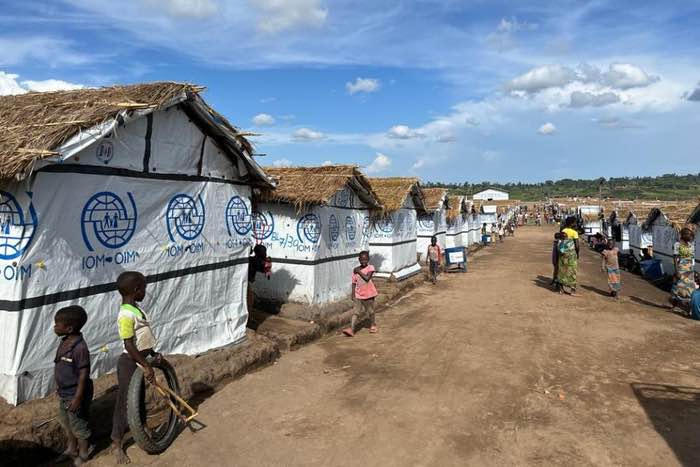
The International Organization for Migration (IOM) is intensifying its efforts to address the complex and persistent crisis in the Democratic Republic of the Congo (DRC) as the number of internally displaced people climbs to 6.9 million people across the country – the highest number recorded yet. For the first time, nationwide displacement data has been collected in all 26 provinces of the country by the United Nations through IOM’s Displacement Tracking Matrix.
With ongoing conflict and escalating violence, the DRC is facing one of the largest internal displacement and humanitarian crises in the world.
As of October 2023, most internally displaced persons, about 5.6 million (81 per cent of the total IDPs) live in the eastern provinces of North Kivu, South Kivu, Ituri, and Tanganyika. Conflict has been reported as the primary reason for displacement. In the eastern province of North Kivu alone, up to 1 million people have been displaced due the ongoing conflict with the rebel group “Mouvement du 23 Mars” (M23). More than two-thirds of the internally displaced persons, nearly 4.8 million people, live in host families.
As the security situation, particularly in North Kivu and Ituri, continues to deteriorate, movements become more frequent and humanitarian needs soar.
“For decades, the Congolese people have been living through a storm of crises,” explains Fabien Sambussy, IOM’s Chief of Mission in DRC. “The most recent escalation of the conflict has uprooted more people in less time like rarely seen before. We urgently need to deliver help to those most in need.”
Despite limited humanitarian access and security concerns, IOM remains committed to providing critical assistance to displaced persons, returnees and host communities affected by the crisis.
IOM has been actively involved in managing 78 displacement sites hosting over 280,000 internally displaced people. Since the scale up was declared in June this year, 3,347 emergency shelters were constructed, 7,715 non-food item kits with essential supplies were distributed, and 17,116 individuals benefited from water, sanitation and hygiene assistance. Moreover, IOM is enhancing mental health and psychosocial support services for site residents, facing psychological distress.
The Organization aims to support an additional 10,000 households (50,000 individuals) in the next three months. But many more people desperately require assistance to meet their basic needs.
IOM operations in the DRC remain significantly underfunded; less than half (37%) of the requested USD 100 million has been received. While acknowledging the limitations posed by limited humanitarian access, IOM is advocating for additional land to set up sites in North Kivu, enhanced security and increased resources to meet the most pressing needs of communities affected by protracted and repeated internal displacement. (End)
